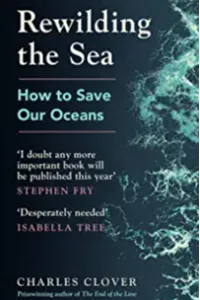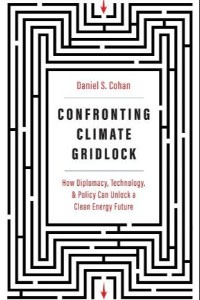Best new books on climate and the environment

Roula Khalaf, Editor of the FT, selects her favourite stories in this weekly newsletter.
Nothing is more final than extinction, or more brutal. Considering the pace at which species are dying off as humans destroy their homes and heat the planet, it is no surprise that extinction features heavily in a new crop of climate books. Heavily, but by no means tediously.
British nature writer Peter Marren covers the subject with admirable brio in After They’re Gone: Extinctions Past, Present and Future (Hodder Studio £16.99). We are, he contends, witnessing a sixth mass extinction in which species are once again disappearing at abnormally high rates. The difference is that this time the cause is us.

Depressing as this is, there are upsides. The threat of extinction, he writes, has spurred an unprecedented burst of effort to find and catalogue species before they vanish. Half the world’s frogs and sharks were discovered in the past 50 years.
Also, many extinct creatures continue to live on in our imaginations. The flightless dodo is still one of the most famous birds in the world, even if the Dutch liked to call it “dod-aars” or “fat arse”, and its name seems to come from the Portuguese word for “fool”.
Importantly, though, the extinction threat has put environmental conservation work into overdrive. Marine conservation successes are at the heart of Charles Clover’s latest book, Rewilding the Sea: How to Save Our Oceans (Witness Books £22).

Clover, an environmental journalist turned conservationist, is known for his 2004 book on overfishing, The End of the Line, which was made into a documentary film. Fish stocks continue to face serious over-exploitation globally and in some cases collapse. But his new book argues there is evidence the problem can be fixed by “rewilding” the sea, either by actively restoring habitats and species or leaving them alone to recover.
Such efforts helped to restore species once sliding towards extinction, such as the bluefin tuna prized for sushi and sashimi. They have also spurred the recovery of conger eels and coral off the coast of Dorset and Devon. The challenge now is to expand the effort faster and further.
Meanwhile, on land, conservation efforts can have unsettling side effects for vulnerable humans, writes French environmental historian Guillaume Blanc in The Invention of Green Colonialism (Polity £15.99).

Blanc’s blistering critique of the international conservation groups that helped to create national parks in Africa caused a stir when it was first published in French in 2020. In this English translation by Helen Morrison, Blanc hastens to say that he does not wish to denigrate environmental causes. Rather, he wants to highlight the impact the parks have had on Africans, thousands of whom he says have been driven out, sometimes violently, in favour of animals, forests or savannahs.
At least a million people were forced from protected zones over the course of the 20th century, reports Blanc, who focuses on the Simien Park in Ethiopia, which he has visited repeatedly since 2007.
The problem stems from what he says is a flawed vision of Africa as a last, untouched wilderness, and the west’s vain attempts to preserve it. “The more we destroy nature here, the more energetically we try to save it there,” he writes.
Finally there is a new addition to the growing number of books offering creative policy solutions to climate change: Confronting Climate Gridlock: How Diplomacy, Technology & Policy Can Unlock a Clean Energy Future (Yale University Press £20/$28).

Author Daniel S Cohan, an atmospheric scientist in the US, says that existing international systems for cutting emissions, such as the grindingly slow UN climate negotiations, are not working. He makes a convincing case for setting up smaller, nimbler coalitions of countries keen to advance climate action, rather than waiting for laggards to catch up.
Elements of this approach have already started to emerge. One of the most important announcements at last year’s COP26 climate summit in Glasgow was an $8.5bn pledge by the US and other rich nations to help South Africa shift away from coal. Cohan also makes a case for “carbon clubs” of countries offering exclusive benefits that encourage membership and discourage departures. Such groups could have common carbon-pricing systems and carbon tariffs on imports from non-members that do not price carbon. Or they could co-ordinate on green energy research.
His ideas may sound far-fetched today, but as the hunger for new ways of tackling the climate problem grows, they are also very welcome.
Pilita Clark is an FT business columnist
Join our online book group on Facebook at FT Books Café
Comments